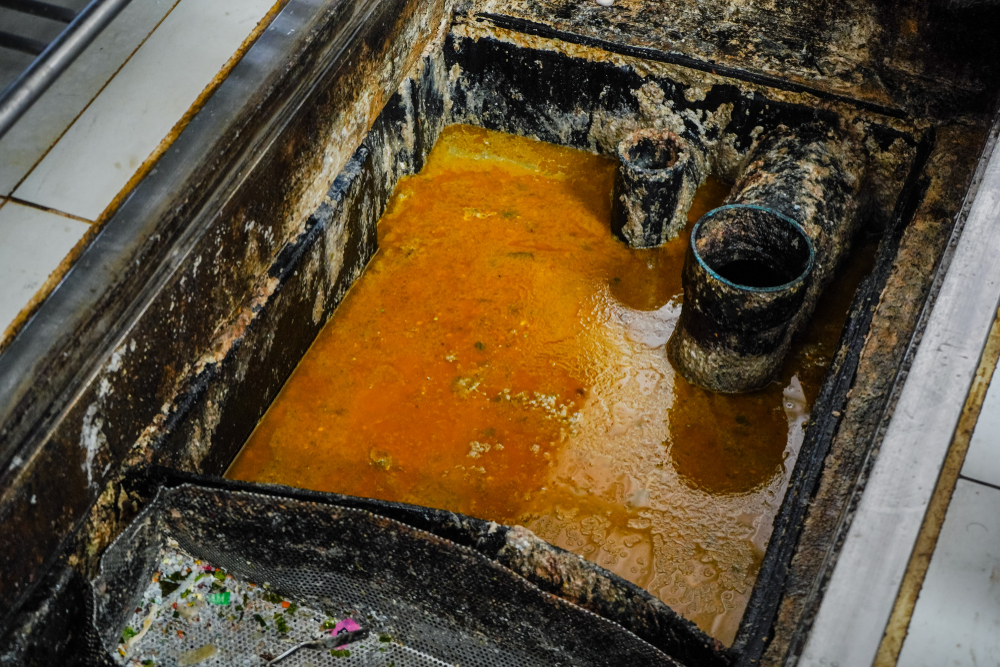
Septic Pumping and Grease Traps in Restaurants
July 22, 2024 1:24 pm Leave your thoughtsIn the bustling world of restaurant management, ensuring proper sanitation and compliance with health regulations are paramount. Among the crucial maintenance tasks that restaurant owners and managers must stay on top of are septic pumping and grease trap cleaning. These essential services not only maintain hygiene standards but also prevent costly disruptions to daily operations. This blog explores the importance of septic pumping and grease trap maintenance in restaurants, highlighting their significance, processes involved, and why adherence to recommended schedules is non-negotiable.
Understanding Septic Systems in Restaurants
The Role of Septic Systems
Septic systems in restaurants play a critical role in managing wastewater from kitchen and bathroom facilities. Unlike centralized sewer systems, septic systems are self-contained and require regular maintenance to function efficiently. In a restaurant setting, where grease, oils, and food particles are routinely washed down drains, the risk of septic system failure due to clogging is heightened.
Signs Your Septic System Needs Pumping
Recognizing when a septic system requires pumping is essential to prevent backups and potential health hazards. Common signs include slow drainage, foul odors emanating from drains or the septic area, and pooling water or lush vegetation near the drain field. Regular inspections and adherence to pumping schedules recommended by professionals are crucial to avoiding these issues.
Importance of Regular Septic Pumping
Regular pumping of the septic tank removes accumulated solids and ensures that wastewater flows smoothly through the system. For restaurants, where heavy water usage and organic waste are prevalent, adhering to a consistent pumping schedule is not just a recommendation but a necessity. This proactive approach not only prevents emergencies but also extends the lifespan of the septic system, saving significant costs in the long run.
Grease Traps: A Vital Component of Kitchen Hygiene
Function and Importance of Grease Traps
Grease traps, also known as grease interceptors, are devices designed to capture fats, oils, and grease (FOG) from kitchen wastewater before it enters the sewage system or septic tank. In restaurants, where large quantities of grease are generated daily, grease traps are crucial for preventing blockages in plumbing systems and municipal sewer lines.
Signs Your Grease Trap Needs Pumping
Similar to septic systems, grease traps require regular maintenance to remain effective. Signs that your grease trap needs pumping include unpleasant odors around the trap, slow drainage in sinks and dishwashers, and visible grease buildup inside the trap. Timely pumping and cleaning prevent these issues and ensure that your kitchen operations remain smooth and compliant with health regulations.
Professional Grease Trap Pumping Services
Hiring professional grease trap pumping services ensures thorough cleaning and compliance with local regulations. These services typically involve inspecting the trap, removing accumulated grease and solids, and ensuring that the trap is functioning optimally. For restaurants, partnering with experienced professionals guarantees that your grease traps are maintained according to industry standards, reducing the risk of fines and operational disruptions.
Compliance and Best Practices
Regulatory Compliance
Restaurants are subject to strict regulations regarding wastewater management and sanitation. Compliance with these regulations not only avoids legal penalties but also safeguards public health and maintains your establishment’s reputation. Regular maintenance of septic systems and grease traps is a fundamental part of meeting these requirements.
Best Practices for Maintenance
Implementing best practices for septic pumping and grease trap maintenance involves several key steps:
- Schedule Regular Inspections: Routine inspections by qualified professionals identify potential issues early.
- Follow Pumping Schedules: Adhere to recommended pumping schedules based on the size of your septic system and grease trap capacity.
- Educate Staff: Train kitchen staff on proper disposal practices to minimize the introduction of harmful substances into wastewater.
Benefits of Proactive Maintenance
The benefits of proactive maintenance extend beyond compliance:
- Cost Savings: Preventing major repairs or replacements through regular maintenance saves money.
- Operational Efficiency: Smooth operations without disruptions from plumbing issues or regulatory non-compliance.
- Enhanced Reputation: Demonstrating a commitment to cleanliness and sustainability enhances your restaurant’s reputation among patrons and regulators alike.
Conclusion
Septic pumping and grease trap maintenance are indispensable responsibilities for restaurant owners and managers. By understanding the roles these systems play, recognizing signs that maintenance is needed, and adhering to best practices and regulatory requirements, restaurants can ensure clean, efficient operations. Partnering with professional services for septic pumping and grease trap cleaning not only simplifies these tasks but also guarantees compliance and peace of mind. Investing in regular maintenance is an investment in the longevity and success of your restaurant.
Need a Septic Tank & Grease Trap Cleaning Company in Farmington, NH?
B.H. Cameron Septic Services LLC has been proudly serving the surrounding counties since 2005, providing efficient, cost-effective solutions to meet your residential or commercial septic system needs. We will help you develop your initial design and secure permits for installation or provide conversion to the city sewer system. We offer peace of mind with routine maintenance service after the job is done. When you contact B.H. Cameron Septic Services LLC, you will be greeted by one of our customer service staff. An experienced service technician will work directly with you to determine how we can help with your septic service or maintenance. Call us today!
Categorised in: Grease Trap Pumping
This post was written by admin
